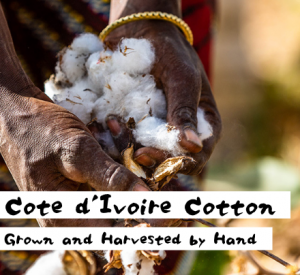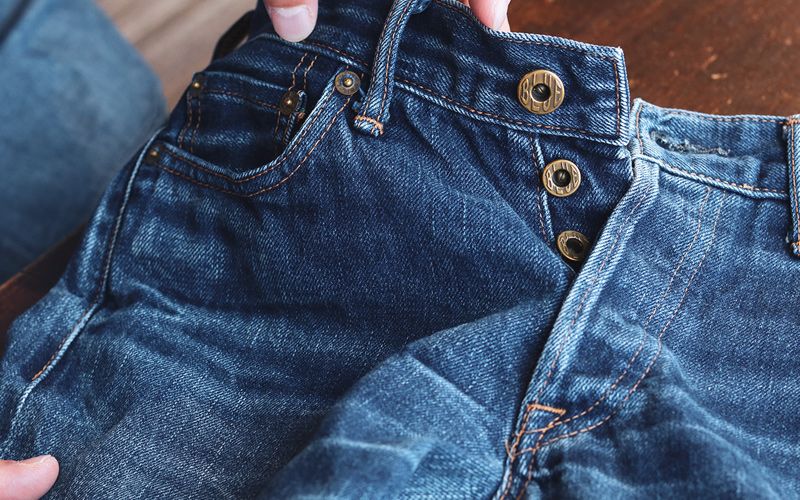Why Côte d'Ivoire?
Why Côte d'Ivoire?
Hi,
This is Kishimoto, JBJ's director.
Japan Blue Jeans (JBJ) makes jeans using 100% Côte d'Ivoire cotton.
*What is Côte d'Ivoire cotton
When we launched the brand in 2012, we chose the cotton from that we had used in the past to make jeans.
Here is the memory of that time.
Each cotton has its own unique characteristics, and we dye and weave the fabric to make the most of those characteristics.
Besides I started to think about the jeans that can be made just because of JBJ, nobody can make them except for JBJ.
At that time, I remembered that I had a piece of jeans from the late 1800s that I had given from a jeans geek in Sweden in my desk.
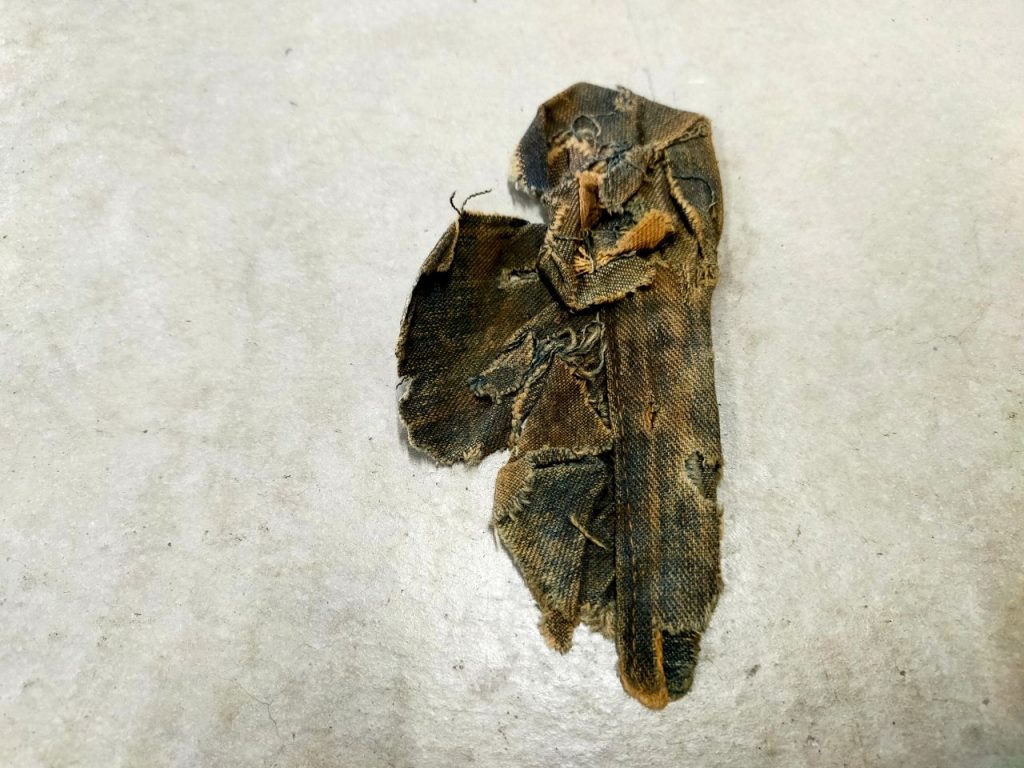
It's not garbage....
It is an impressive aging process.
It seems to be came out of the soil, and I don't want to touch them because the dirt still falls off when I beat it even now.
Denim fabrics were born to be used as work wear, to be used only for work and they followed it.
We can feel the ruggedness and innocence of it.
I wanted more people to feel and experience this atmosphere and fading (aging)!
From these thoughts we started making new denim fabric.
In those days, even if we tried to spin the yarn straight and neatly, the spinning technology was still in its infancy so there were uneven thick and thin parts in one yarn.
Nowadays we can spin yarns straight or unevenly at will.
The uneven yarns of those days can be reproduced to some extent with today's technology.
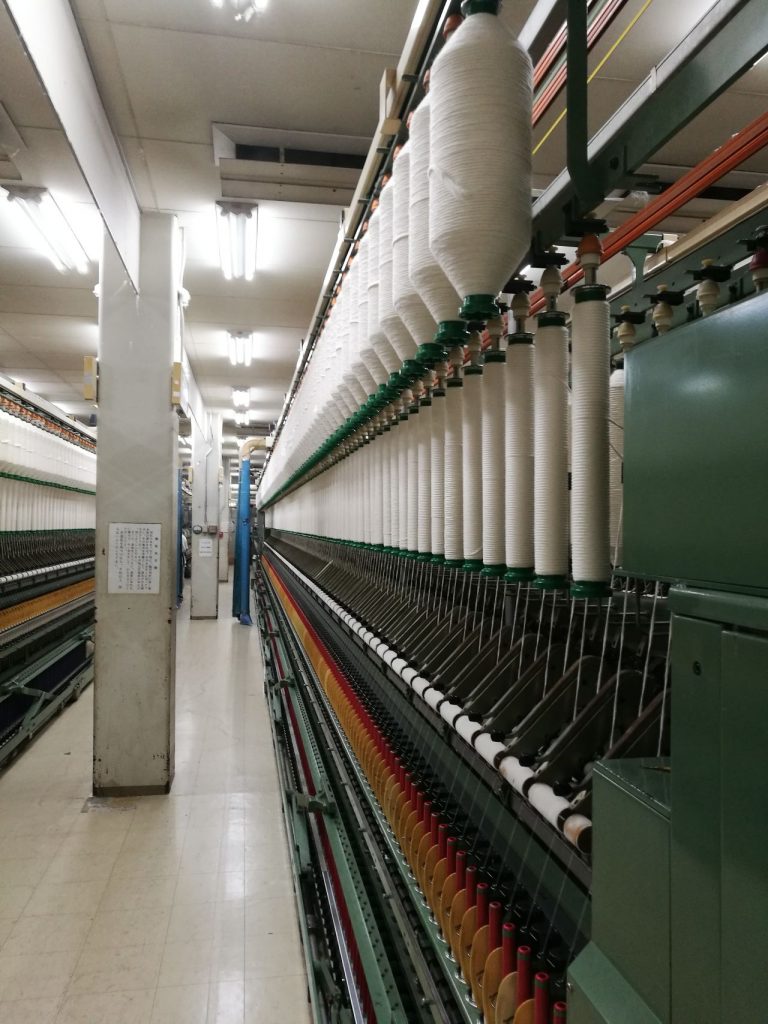
Jeans in JBJ also use uneven yarns, but I wanted to somehow get closer to the "natural unevenness that was created when people tried to make them straight" at that time.
So then we collected cotton samples at random first.
USA, Australia, India, Zimbabwe, China, Brazil.... about 20 kinds.
From that, we narrowed it down to a few kinds and tested making uneven yarns.
They turned to be a very good uneven yarn, but we needed one more thing to push us over... and we could not decide which is the best.
During this trial and error process, I had the opportunity to meet with a person who was supporting the Republic of Côte d'Ivoire.
He told me that there was a civil war until 2011, and the gap in poverty and education between the urban areas and the agricultural north was quite severe.
In the agricultural areas of the north, cotton had been produced, but it declined due to the civil war and was being worked on for revival.
Côte d'Ivoire cotton was not imported to Japan at that time and was used in Africa and Europe.
We ordered a sample to see what kind of cotton it was. When I opened the box, the air of West Africa leaked out (I've never been there so I was just guessing...lol)
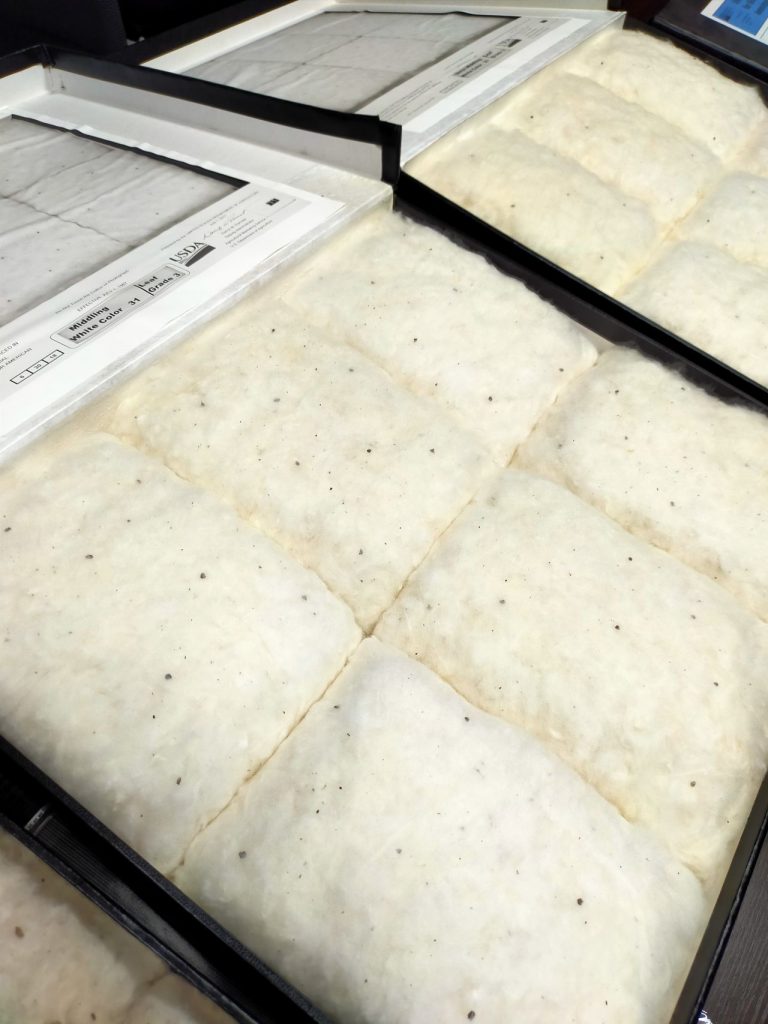
It is not glossy, or white and beautiful, it is more like nature!
The good quality cottons that have been improved in whiteness, luster, and fiber length come into Japan.
On the other hand, Côte d'Ivoire cotton has remained almost untouched by breeding.
I thought this means that the quality of the cotton is close to that of the cotton used for old clothes... so we immediately made a sample of the yarn.
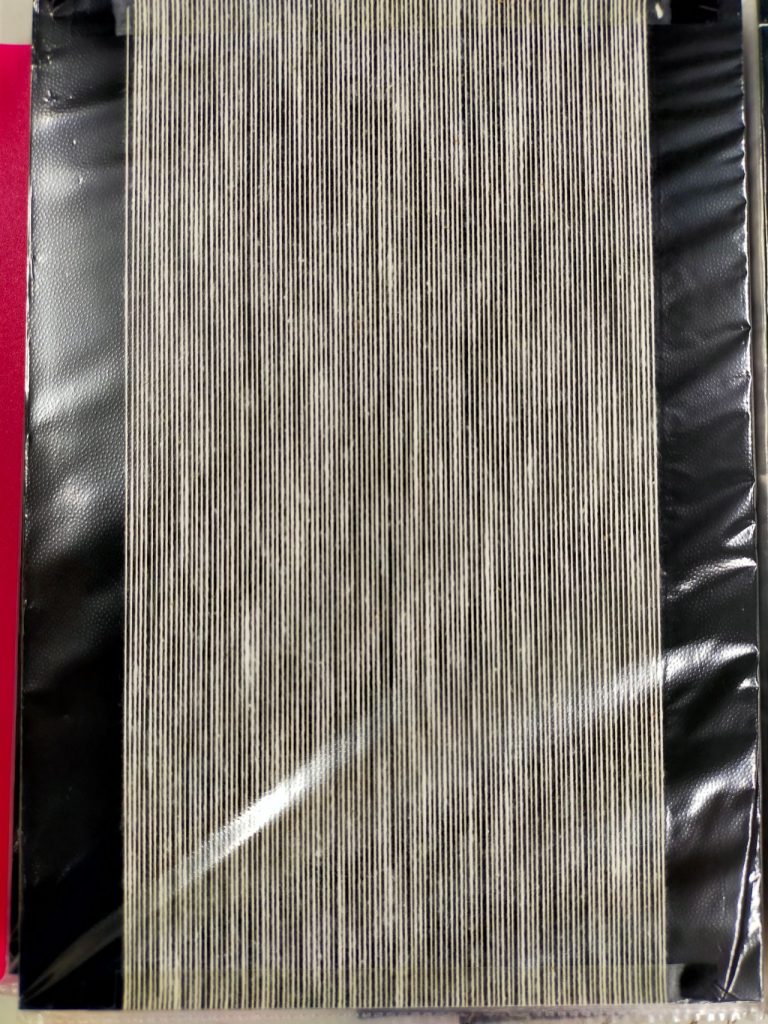
Then such a great unevenness and appropriate nep appeared.
The shape of unevenness was perfect.
The quality of the cotton is not too hard or too soft, which is exactly the texture I was looking for.
I was so lucky to know about Côte d'Ivoire cotton through a chance encounter.
Since then, we have continued to make jeans while expanding the lineup little by little.
According to my sources, JBJ is the only brand that make jeans with 100% Côte d'Ivoire cotton.
Please do experience Côte d'Ivoire cotton!
Click here!

